AT STATEN ISLAND UNIVERSITY HOSPITAL, DR. SEBASTIAN RUBINO AND A TEAM OF SKILLED NEUROSURGEONS ARE DEDICATED TO ADVANCING CARE IN ONE OF THE MOST INTRICATE AND DELICATE FIELDS IN MEDICINE
BY AMANDA McCOY PHOTOS BY AMESSE PHOTOGRAPHY
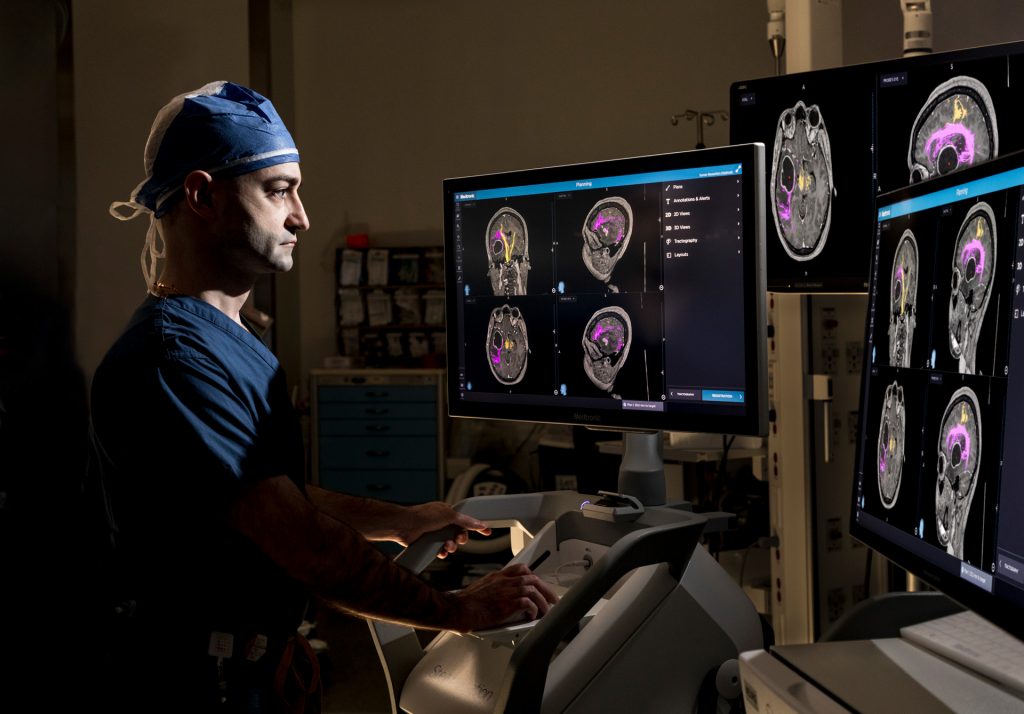
The brain is the most complex organ in the human body. Roughly the size of two clenched fists, it comprises a vast network of 86 billion neurons that form trillions of connections that control vital life functions like movement, cognition, memory, emotion, logic, and identity. While cancer of the brain or spine is rare accounting for less than 2% of cancer diagnoses per data from the National Cancer Institute treatment is highly delicate, requiring collaboration between a multidisciplinary team of sub-specialists to achieve the best possible outcome for patients. At Staten Island University Hospital, Sebastian Rubino, MD, along with a team of dedicated neurosurgeons, are working tirelessly to advance care in one of the most complex and sensitive fields across the entire medical landscape.
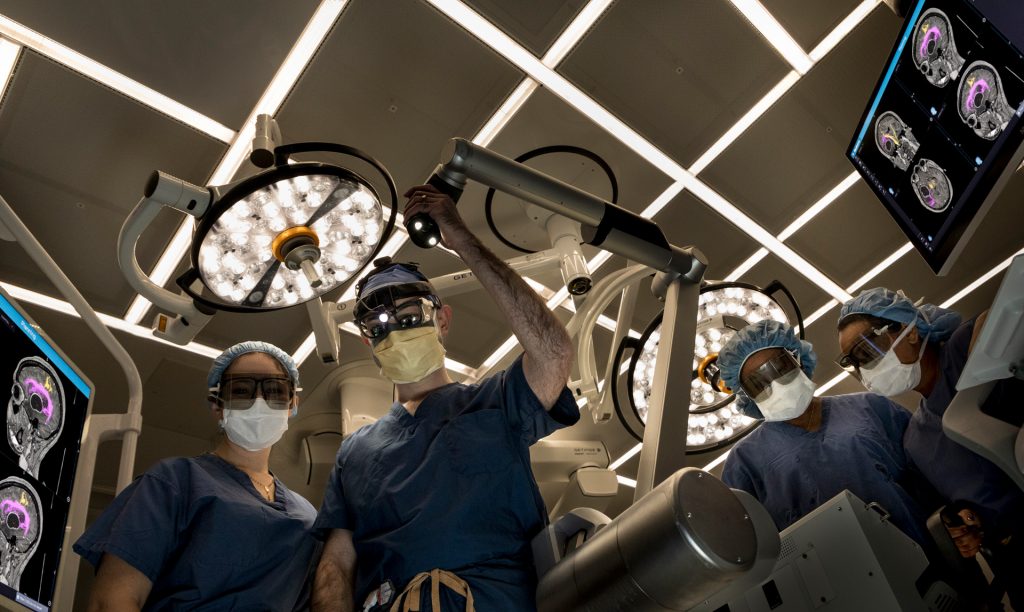
“Because of the complex nature of neuro-oncology, care can become easily fragmented as there are so many specialties involved,” noted Dr. Rubino, a board-certified neurosurgical oncologist who specializes in the treatment of brain and spine tumors. “At SIUH, we are building a comprehensive neuroscience program, and one of our big pushes is to streamline the treatment process so patients receive the critical care they need faster.”
Born and raised in Staten Island, Dr. Rubino’s journey to becoming a fellowship-trained neuro-specialist began in the New York City public school system. He volunteered at SIUH in high school, developing an ardor for science and medicine that eventually took him to Dartmouth Medical School, where he fell in love with neurosurgery, describing it as “one of the most complex, delicate, and important procedures in the medical field.” From there, Dr. Rubino completed his residency and subspecialty training in spine surgery at Albany Medical Center Hospital, followed by a fellowship in neurosurgical oncology at Moffitt Cancer Center in Tampa, Florida. In 2022, all roads led back to his home borough when Dr. Rubino joined Ronit Gilad, MD, and the leaders of SIUH’s world class Neurosurgery Division.
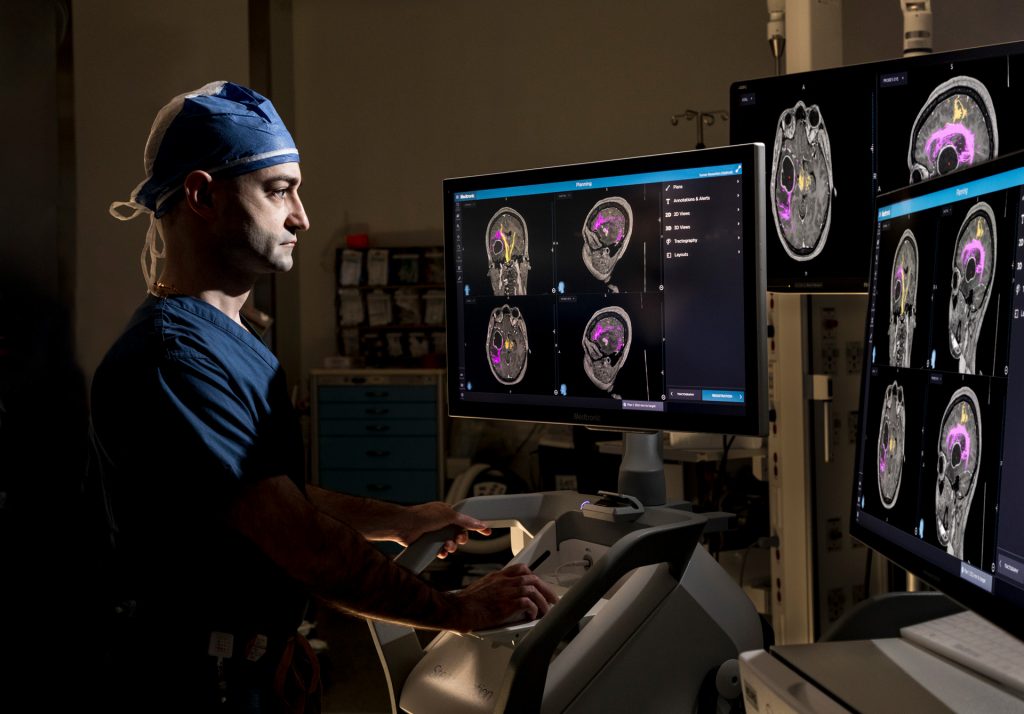
At SIUH, Dr. Rubino and his colleagues treat the full spectrum of brain and spine oncologic conditions, from primary and metastatic brain and spinal cord tumors and pituitary and neuroendocrine disorders to brain and spine blood vessel disorders. Dr. Rubino explained that when a patient presents with a possible brain tumor, physicians conduct a cranial imaging CT scan of the head, which uses X-rays to create detailed images of the brain, skull, sinuses, and eye sockets. If a diagnosis is confirmed, all patients are then presented at the hospital’s multi-disciplinary tumor board to quickly but accurately determine a personalized treatment plan. As Dr. Rubino explained, when treating brain or spine tumors, every minute counts.
“The tumor board is an in-depth working group of neuro surgeons, medical oncologists, radiation oncologists, and nurse navigators, and together we look at each case and collaborate on next steps,” he said. “This way, we are able to expedite appointments. Oftentimes, brain tumors are diagnosed similar to a stroke with an acute onset of symptoms, meaning we need to get them into treatment as quickly as possible. It previously could take three to four weeks to get a patient into the OR, and we’ve been able to significantly reduce that lead time.”
Once a treatment course is determined, physicians have the full gamut of leading-edge technologies available to them. (SIUH was recognized as a high-performing hospital in neurology and neurosurgery by U.S. News and World Report in 2024). Neurosurgery is a rapidly evolving field recent advancements in laser tech and minimally invasive techniques continue to change the game for Staten Island patients.
Laser interstitial thermal therapy (LITT), for example, is a minimally invasive procedure that, under guidance from real-time MRI imaging, harnesses a laser to precisely target and destroy abnormal brain tissue through heat. “It’s almost outpatient brain surgery,” noted Dr. Rubino. “We are able to target difficult-to-reach tumors that were previously inaccessible.”
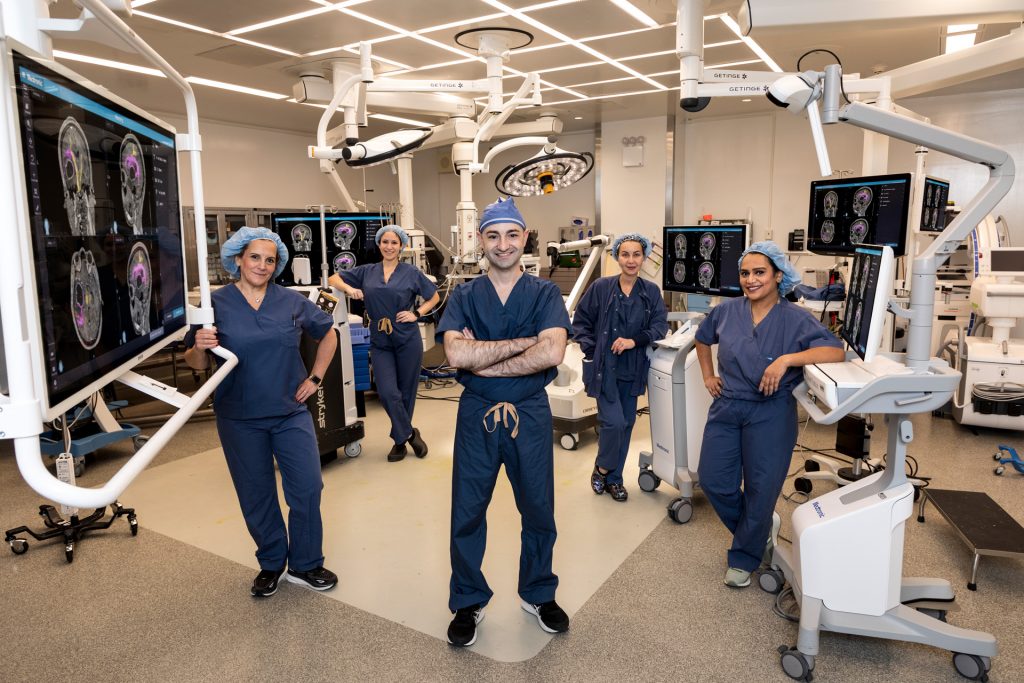
Neurosurgeons are also utilizing awake brain surgery to minimize complications that could affect vital quality-of-life functions like movement, sensation, and speech. The procedure is performed while the patient is awake, thus the surgeon can monitor brain function in real-time and ensure that as much of the tumor as possible is resected safely.
SIUH’s nimble size is another significant patient advantage, continued Dr. Rubino. “Because we are part of Northwell Health, patients have access to the clinical trials within our entire system, but we operate with a community feel at the hospital. Here, patients have a relationship with their surgeon; they are advocates. In bigger organizations, systems are so complex that everything falls into a widget. At SIUH, we have more autonomy in moving patients forward in a streamlined way. We can alter, pivot, and expedite – these things matter in the long run.”
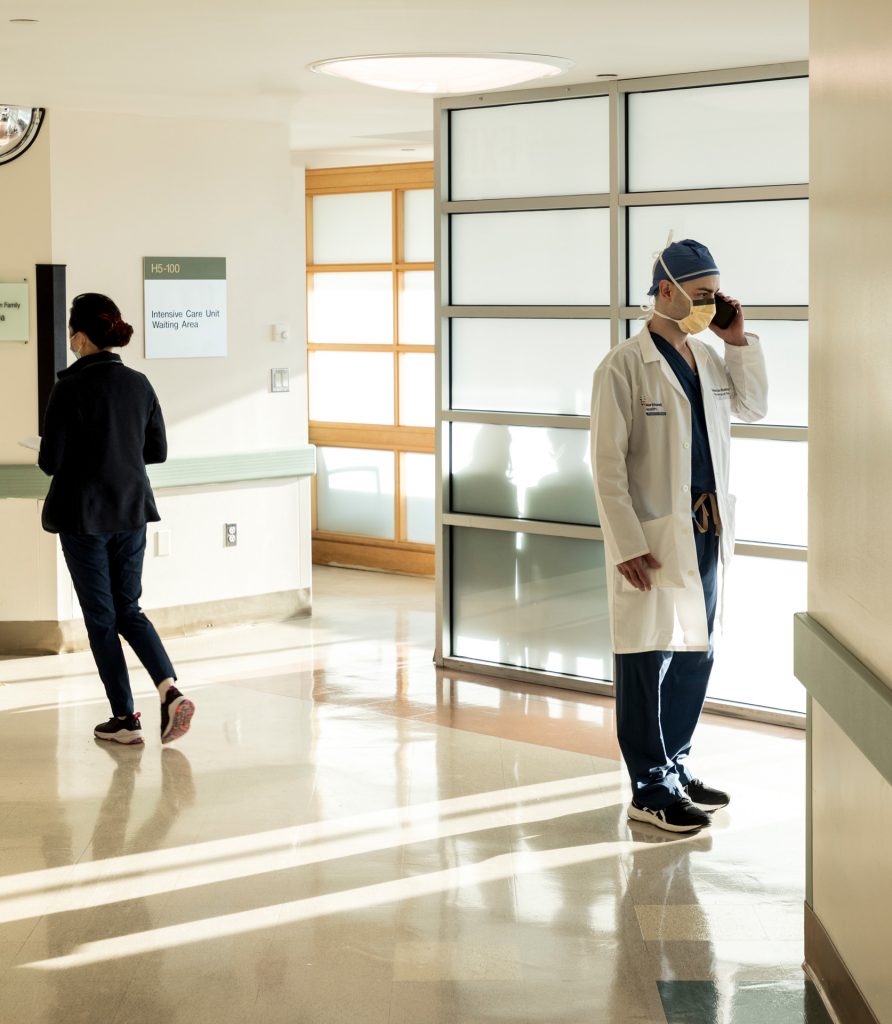
Serving as a patient advocate is a source of pride for the born-and-raised Staten Islander, who was called to the complex field of neurosurgery because of the incredible impact he could have on a patient’s journey. “The biggest rewards of my role as a physician are being able to give patients and their families more time together, and helping them through a scary diagnosis with an uncertain future. I want people to know there’s always a next step. I’m lucky to work in a system where I’m able to advocate for patients and play a significant role in their care.”
Northwell Health Physician Partners
Neurosurgery at Seaview Avenue siuh.northwell.edu/neurosurgery

